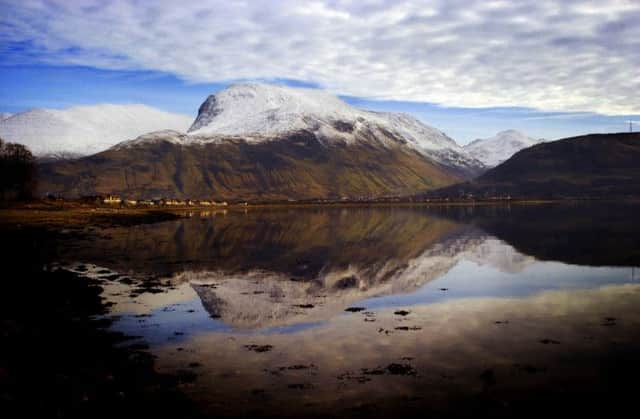Scottish independence: Mountaineering’s 5 questions


The Mountaineering Council of Scotland (McofS) claims the outcome will have far reaching implications for the land as well as the people of Scotland.
The organisation, which represents 12,000 members, has set out five questions for both sides.
Advertisement
Hide AdThe body says neither the Scottish Government’s White Paper, Scotland’s Future, nor anything the No camp has offered, gives convincing detail about the future for our threatened landscapes.
David Gibson, MCofS Chief Officer, said: “Scotland’s wild lands and mountains are fundamental to its historical, social and cultural identity and yet there has been precious little mention of them in this debate.
“The biggest reason why visitors come to Scotland are the wild and unspoiled landscapes yet more are destroyed each year – a risk to wildlife, tourism and recreation. Successive governments have failed to create proper planning regulations at a national level to stop industrial-scale wind farms being built in sensitive areas of wild land and mountain landscape.
“While the Scottish Government says it wants to see enhanced protection in areas covered by the new Scottish Natural Heritage’s map of wild lands, this has no legal teeth and developers are already trying to undermine it.
“Where will Scotland be if its wild lands are ruined? We need clear answers from the Yes and No camps and a bold, positive vision for our mountains and wild lands.”
He said a test case was already available for both sides.
Advertisement
Hide AdHe added: “Each could show their credentials by expressing clear opposition to the Talladh a Bheithe wind farm proposal for 24 turbines, each 125m tall, in Rannoch in an area covered by the Wild Land Map, in view of Schiehallion and the tourist route to Glencoe and the western highlands.”
The five questions the MCoS have for the Yes and No camps are:
Advertisement
Hide Ad• Will Scotland’s wild mountain landscapes be safeguarded better by an independent Scotland or by remaining as part of the UK?
• Some 91% of Scottish residents believe it important to retain wild places (Public Perceptions of Wild Place and Landscapes in Scotland, SNH, 2014).Wild land in Scotland fell from 41% in 2002 to 28% in 2009 (SNH Natural Heritage Indicators) - a loss of a third in just seven years, and the losses have continued. Will this decline be halted either as an independent country or as part of the UK?
• How will independence, or remaining within the UK, provide real protection against industrial-scale developments in our most sensitive landscapes?
• Tourism is the largest employer in many of our remotest and most fragile communities; access to wild land is a key appeal of tourism businesses in these communities.How will this lifeline industry be protected in an independent Scotland - or as part of the UK?
• Are Scottish governments more likely to listen to the people, and less to developers and big business, in the planning system under independence or within the UK?